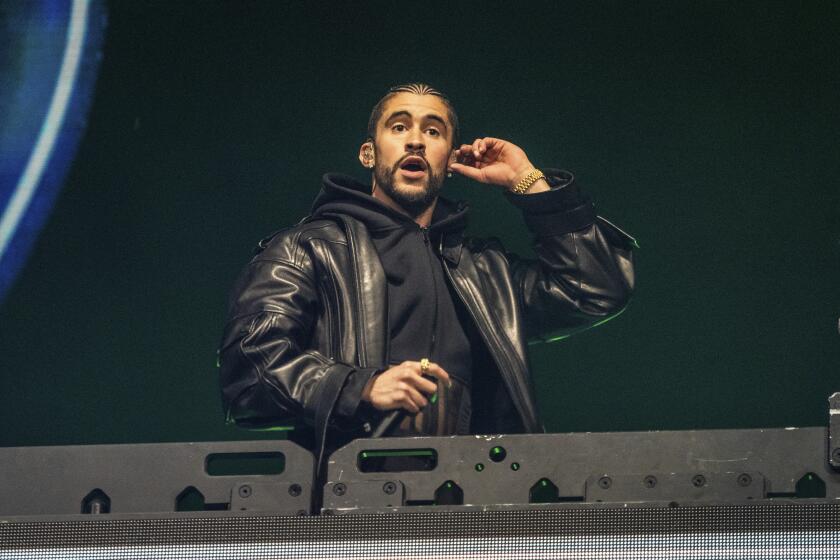JAZZ REVIEW : Mr. Magic Pulls the Same Old Rabbits Out of His Sax
- Share via
SAN JUAN CAPISTRANO — “If it ain’t broke don’t fix it.” That’s Grover Washington Jr.’s credo.
Or so one would guess after the first of two shows Thursday at the Coach House. Working with a tight, six-piece backup band, the saxophonist concentrated on his past successes in such a predictable manner that you’d think he was recording a “Greatest Hits Live!” compilation.
Washington opened with his biggest hit, “Winelight,” and continued on until the encore of what has long been his theme song, “Mr. Magic.”
In between, he offered a compendium of tunes from his ‘70s heyday, including one medley that contained no fewer than half a dozen Grover oldies. There were a few tunes from his most recent album, last year’s “Next Exit.” But for the most part, we’d heard it all before.
And that was fine with the audience, which greeted the hits of 15 years and more back with cheers of recognition. The show had everything except new material for this genuinely skilled saxophonist to play.
Washington continues to be the most skilled of the crossover reed men, with a go-easy attitude, a sense of swing inlaid against the backbeat and occasional--very occasional--glimpses of technique.
He bobs and weaves like a boxer when playing and has an attractive way of lazily laying behind the beat, as he did on “Winelight.” But Washington can also play with force and conviction, even if what he does play is often repetitive and emotionally cheap.
Some of his best alto work came on the rock-steady arrangement of “Take Five,” subtitled “Take Another Five,” pulled from the “Next Exit” recording.
While the ensemble worked up a dark, minor-key backdrop that suggested the cool modalism of acid jazz, Washington added moody statements and questioning comments that sounded almost sinister in places.
But this intense feeling disappeared when drummer Steven Wolf, illuminated by flashing strobes, took a heavy-handed solo that seemed geared more for fans of Metallica than of Dave Brubeck.
Washington’s tenor tone is so transparent that it’s very difficult to distinguish between it and his alto in some registers. What the larger instrument does add is warm lower tones, and Washington used them to add depth and a bit of romance to the mid-tempo funk tune “Summer Chill,” also from “Next Exit.” For the most part, his soprano tones were light and airy, though the instrument took on a whiny, nasal quality when played more assertively.
Led by keyboardist and musical director Bill Jolly, the percussion-heavy sextet played the up-tempo tunes with authority, while bringing sensitive touches and grace to the ballads.
The solo space--not counting drummer Wolf’s barrage during “Take Five”--was kept to a minimum, but a few fine, though brief improvs were aired. Jolly’s fellow keyboardist, Curtis Dow, demonstrated his ability to use the pitch wheel of his synthesizer to bend notes with impunity.
At one point, guitarist Richard Lee stirred up a reggae beat with swizzle-stick electronic notes. Percussionist Pablo Batista took a long, involved conga solo at the end of the lengthy Grover medley.
Washington seemed to run out of ideas as the show progressed, relying more on repeated figures and high-end excitement than the strong narrative sense that can make his playing so enjoyable.
By the time he picked up the tenor for “Mr. Magic,” he was reduced to high-end trills and a long display of rotary breathing. The real magic had come earlier.
More to Read
The biggest entertainment stories
Get our big stories about Hollywood, film, television, music, arts, culture and more right in your inbox as soon as they publish.
You may occasionally receive promotional content from the Los Angeles Times.










